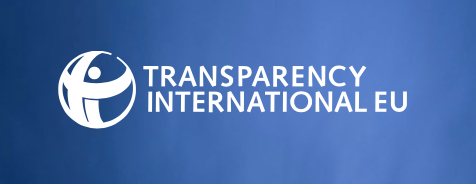Transparency International’s newest study on the careers of 485 former Members of the European Parliament (MEPs) and 27 former EU Commissioners shows how many of those politicians afterwards become lobbyists. 30 percent of former MEPs and more than 50 percent of former Commissioners work by now for organisations on the Transparency Register for lobbyists. This is the first overview of this kind.
MEP Sven Giegold, spokesperson of the German Greens in the European Parliament and rapporteur for Transparency, Accountability and Integrity in the EU Institutions, commented:
“The gates are thrown open for new discontent from citizens when politicians go through the revolving door after their mandate is over to work as lobbyists. Hard but fair rules have to be put in place to ensure that politics works towards – and answers to – only the common good. The present rules against conflicts of interest are nothing but bad cosmetics.
The cooling off period for EU Commissioners not only needs extension but also independent oversight. Procedures in the EU Commission for assessing conflicts of interest lack independence. So far, the ethics committee, which is hand picked by the Commission, has acquitted all former Commissioners including those who definitely breached the Code of Conduct like Neelie Kroes. The EU Commission has to revise its Code of Conduct completely and put in place an credible, impartial, ethics body. It makes no sense have a conflict of interest when it comes to preventing conflicts of interest. The Commission should therefore follow the model of the “High Authority” for ethics in France, as this new body has already sanctioned a number of high ranking politicians.
It is absurd that there is a cooling off period of two years in place for assistants to Members of the European Parliament yet MEPs themselves can become lobbyists right after their mandate. It is sad how Conservatives and Liberals blocked cooling off rules when, shortly before Christmas, Parliament voted on a revision of the Rules of Procedures. Together with more than 100 MEPs from 5 Groups we asked for an obligation to publish new lobby jobs after the mandate and a cooling off period for the time that former MEPs receive a transitional allowance. The obligation to publish new jobs was rejected by majority, the cooling off period was not admitted to the vote by former President Martin Schulz. We will reassert our proposal for the next reform. The cooling off period should apply also when MEPs change to civil society, not only for industry lobby groups.”
- TI-Study: http://transparency.eu/wp-content/uploads/2017/01/Access-all-areas.pdf
- Our proposals for obligation to publish new jobs and a cooling off period for MEPs: https://sven-giegold.de/2016/100-meps-call-for-more-transparency-and-integrity-in-the-european-parliament-across-party-lines/
- Rules of Procedure, Annex I – rule 6 – paragraph 1 a (new)
“The Advisory Committee should look into those notifications to determine if their purpose is to influence or enable others to influence EU policy or decision-making. In such cases, the names and activities of former Members shall be published.”
- Rules of Procedure, Annex I – rule 6 – paragraph 1 b (new)
“During a period of equivalent length to that during which former Members are eligible for a transitional allowance as defined in Article 13(2) of the Statute for Members of the European Parliament, they shall not engage in any kind of remunerated activity of which the purpose is to influence or enable others to influence EU policy or decision-making.”
- Roll Call Vote on the obligation to publish new jobs as of 13 December 2016: https://sven-giegold.de/wp-content/uploads/2017/01/RCV-Corbett-publishing-new-jobs.pdf
- other results of the general revision of the Rules of Procedures as of 13 December: https://sven-giegold.de/2016/rules-of-procedure-eu-parliament-strengthens-its-efficiency-and-transparency-but-fails-to-toughen-integrity-rules/

